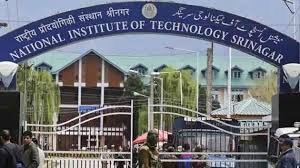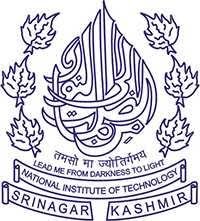A Diploma in Electrical and Electronics Engineering (Lateral Entry) offers a promising future with a wide range of career opportunities and several benefits for graduates. This comprehensive guide explores the future scope and advantages of pursuing this diploma course.
Diverse Career Opportunities: Graduates of the Diploma in Electrical & Electronics Engineering (Lateral Entry) program have access to a broad spectrum of career opportunities. These include roles in electrical and electronics design, maintenance, testing, quality control, automation, and more. The diploma equips students with practical skills and theoretical knowledge, making them valuable assets in various industries.
Employment in Core Sectors: One of the significant benefits of this diploma is its relevance to core industries. Electrical and electronics engineering is integral to sectors such as power generation and distribution, manufacturing, telecommunications, and automation. Graduates can find employment in power plants, manufacturing units, telecommunications companies, and other essential sectors.
Opportunities in Renewable Energy: With the growing focus on renewable energy sources, there is an increasing demand for electrical engineers in the renewable energy sector. Graduates can work on designing, installing, and maintaining renewable energy systems like solar panels, wind turbines, and hydroelectric power plants.
Technological Advancements: The field of electrical and electronics engineering is dynamic and constantly evolving. Graduates stay at the forefront of technological advancements, working with cutting-edge equipment and systems. This exposure helps them build expertise in emerging technologies like IoT (Internet of Things), smart grids, and automation.
Entrepreneurial Opportunities: Diploma holders can explore entrepreneurial ventures in electrical contracting, electronics repair, and maintenance, or even start their own consulting firms. Entrepreneurship allows graduates to be their own bosses and shape their careers according to their interests and ambitions.
High Demand for Skilled Professionals: The demand for skilled electrical and electronics engineers remains consistently high. Industries rely on these professionals to ensure the efficient functioning of their systems and to adapt to new technologies. This demand translates into a stable job market and competitive salaries.
Global Opportunities: Electrical and electronics engineers are in demand worldwide. Graduates have the flexibility to work domestically or explore international job opportunities. Many countries welcome skilled engineers, making it possible for graduates to gain global experience.
Career Progression: The diploma is a stepping stone to further education and career progression. Graduates can pursue Bachelor of Engineering (B.E.) or Bachelor of Technology (B.Tech) programs through lateral entry, which allows them to join the second year of a bachelor's degree program. A bachelor's degree can open up even more advanced career prospects and managerial roles.
Versatile Skill Set: The diploma curriculum emphasizes hands-on training and practical skills. Graduates are equipped with skills in electrical circuit design, electronics, instrumentation, and control systems. This versatility enables them to adapt to various roles within the field.
Job Security: Electrical and electronics engineers are essential in critical infrastructure sectors like power generation and distribution. This sector's stability ensures job security for qualified professionals, even during economic fluctuations.
Competitive Salary Packages: Graduates of the Diploma in Electrical & Electronics Engineering program often receive competitive salary packages, reflecting the high demand for their expertise. Salaries may vary based on factors like location, experience, and the specific industry.
Contribution to Sustainable Development: Electrical and electronics engineers play a pivotal role in developing sustainable technologies and reducing environmental impact. They contribute to the design of energy-efficient systems, renewable energy solutions, and eco-friendly technologies, aligning with global sustainability goals.
Continuous Learning Opportunities: The field of electrical and electronics engineering requires engineers to stay updated with the latest developments and trends. This continuous learning keeps professionals engaged and intellectually challenged throughout their careers.
Transferable Skills: The skills acquired during the diploma program, such as problem-solving, project management, and teamwork, are transferable to various industries. Graduates can explore opportunities in fields beyond traditional electrical and electronics engineering.
Job Diversity: Electrical and electronics engineers can work in various domains, including power systems, electronics design, telecommunications, robotics, and automation. This diversity allows graduates to find a niche that aligns with their interests and career goals.
Contribution to Innovation: Electrical and electronics engineers are at the forefront of innovation. They develop groundbreaking technologies that impact society, such as advancements in renewable energy, electric vehicles, and communication systems.
Personal Fulfillment: For individuals passionate about technology and engineering, a career in electrical and electronics engineering can be personally fulfilling. The ability to create, innovate, and solve complex problems provides a sense of accomplishment and job satisfaction.
 2 Years
2 Years
 Diploma
Diploma
 Engineering
Engineering














 back
back

